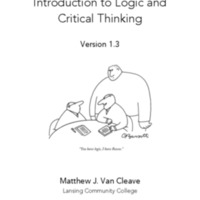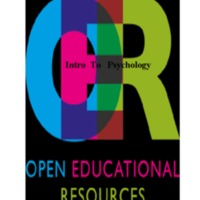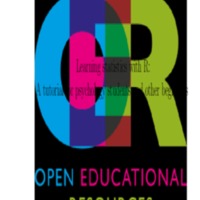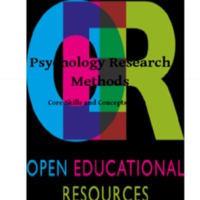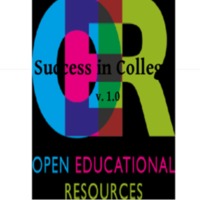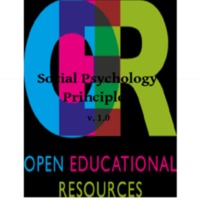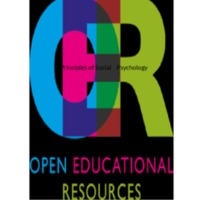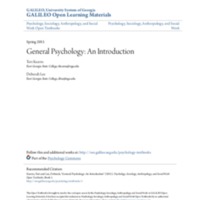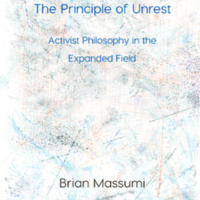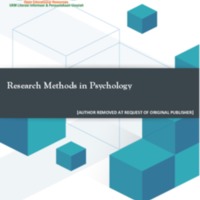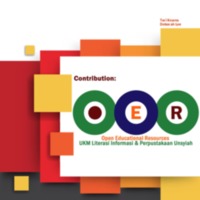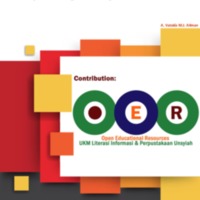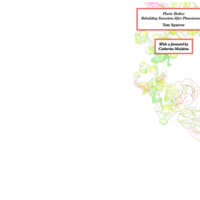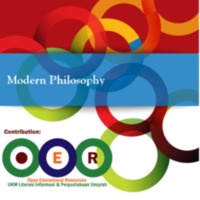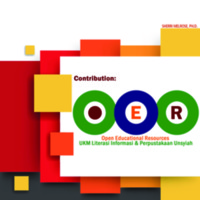100 Philosophy & Psychology
Dublin Core
Title
100 Philosophy & Psychology
Subject
Philosophy & Psychology
Description
Philosophy & Psychology
Items in the 100 Philosophy & Psychology Collection
Conducting Psychology Research in the Real World
The laboratory experiment is traditionally considered the “gold standard” in psychology research. This is because only laboratory experiments can clearly separate cause from effect and therefore establish causality. Despite this unique strength,…
Introduction to Logic and Critical Thinking. Version 1.3
This is an introductory textbook in logic and critical thinking. The goal of the textbook is to provide the reader with a set of tools and skills that will enable
them to identify and evaluate arguments. The book is intended for an introductory…
them to identify and evaluate arguments. The book is intended for an introductory…
Intro To Psychology
Psychology is the scientific study of mind and behavior. The word “psychology” comes from the
Greek words “psyche,” meaning life, and “logos,” meaning explanation. Psychology is a popular
major for students, a popular topic in the…
Greek words “psyche,” meaning life, and “logos,” meaning explanation. Psychology is a popular
major for students, a popular topic in the…
forallX: an Introduction to Formal Logic
Logic is the business of evaluating arguments, sorting good ones from bad ones. In everyday language, we sometimes use the word ‘argument’ to refer to belligerent shouting matches. If you and a friend have an argument in this sense,
things are…
things are…
A Concise Introduction to Logic
A Concise Introduction to Logic is an introduction to formal logic suitable for undergraduates taking a general education course in logic or critical thinking, and is accessible and useful to any interested in gaining a basic understanding of logic. …
LIFESPAN DEVELOPMENT: A Psychological Perspective
Developmental Psychology, also known as Human Development or Lifespan Development, is
the scientific study of ways in which people change, as well as stay the same, from conception to
death. You will no doubt discover in the course of studying that…
the scientific study of ways in which people change, as well as stay the same, from conception to
death. You will no doubt discover in the course of studying that…
Learning Statistics with R: A tutorial for psychology students and other beginners
Learning Statistics with R covers the contents of an introductory statistics class, as typically taught to undergraduate psychology students, focusing on the use of the R statistical software. The book discusses how to get started in R as well as…
Psychology Research Methods
The research methods course is among the most frequently required in the psychology major—and with good reason. Consider that a cross-cultural psychologist and a cognitive neuroscientist meeting at a professional conference might know next to…
Success in College
College Success has a student-friendly format arranged to help you develop the essential skills and provide the information you need to succeed in college. This is not a textbook full of theory and extensive detail that merely discusses…
Social Psychology Principles
Social psychology is the scientific study of how we feel about, think about, and behave toward the people around us and how our feelings, thoughts, and behaviors are influenced by those people. As this definition suggests, the subject matter of…
Abnormal Psychology
Have you ever wondered whether the violence you see on television affects your behavior? Are you
more likely to behave aggressively in real life after watching people behave violently in dramatic
situations on the screen? Or, could seeing fictional…
more likely to behave aggressively in real life after watching people behave violently in dramatic
situations on the screen? Or, could seeing fictional…
Cognitive Psychology
Imagine all of your thoughts as if they were physical entities, swirling rapidly inside your mind. How is it possible that the brain is able to move from one thought to the next in an organized, orderly fashion? The brain is endlessly perceiving,…
Developmental Psychology
Welcome to the study of human growth and development, commonly referred to as the “womb to tomb” course because it is the story of our journeys from conception to death. Human development is the study of how we change over time. Think about how…
Principles of Social Psychology
Have you ever had trouble teaching the various topics of social psychology and fitting them together to form a coherent field? Unnamed Author felt like he was presenting a laundry list of ideas, research studies, and phenomena, rather than an…
Introduction to Psychology
When you teach Introduction to Psychology, do you find it difficult — much harder than teaching classes in statistics or research methods? Do you easily give a lecture on the sympathetic nervous system, a lecture on Piaget, and a lecture on social…
General Psychology: An Introduction
This module provides an introduction and overview of the historical development of the science and practice of psychology in America. Ever-increasing specialization within the field often makes it difficult to discern the common roots from which the…
The Principle of Unrest
There is no such thing as rest. The world is always on the move. It is made of movement. We find ourselves always in the midst of it, in transformations under way. The basic category for understanding is activity – and only derivatively subject,…
Tolerance : The Beacon of the Enlightenment
This anthology, inspired by Voltaire’s advice that a text needed to be concise to have real influence, contains firey extracts from forty different authors, from the philosophers everyone’s heard of to those whose brilliant writings are less…
Psychology
Psychology is designed to meet the scope and sequence for the single-semester introduction to psychology course. For many students, this may be their only college-level psychology course. As such, this textbook provides an important opportunity for…
Research Methods in Psychology
While Research Methods in Psychology is fairly traditional— making it easy for you to use with your existing courses — it also emphasizes a fundamental idea that is often lost on undergraduates: research methods are not a peripheral concern in…
Making Things Stick: Surveillance Technologies and Mexico’s War on Crime
With Mexico’s War on Crime as the backdrop, Making Things Stick offers an innovative analysis of how surveillance technologies impact governance in the global society. More than just tools to monitor ordinary people, surveillance technologies are…
General Psychology: An Introduction
The NOBA Project is a growing collection of expert-authored, open-licensed modules in psychology, funded by the Diener Education Fund. From these open modules, Tori Kearns and Deborah Lee created an arranged open textbook for her introductory…
Rethinking sustainable cities: Accessible, green and fair
Available Open Access under CC-BY-NC licence. Sustainable urbanisation has moved to the forefront of global debate, research and policy agendas over recent years. Rapid urbanisation throughout China, India and many other low and middle income…
Time Distortions in Mind
Time Distortions in Mind brings together current research on temporal processing in clinical populations to elucidate the interdependence between perturbations in timing and disturbances in the mind and brain. For the student, the scientist, and the…
Texts, Transmissions, Receptions
The papers collected in this volume study the function and meaning of various kinds of narrative texts from the perspective of New Philology, Linguistics, Iconography and Reception studies. Their purpose is to understand the workings of narrative…
The Being of Analogy
Similarity has long been excluded from reality in both the analytical and continental traditions. Because it exists in the aesthetic realm, and because aesthetics is thought to be divorced from objective reality, similarity has been confined to…
Occupy: A People Yet To Come
The term Occupy represents a belief in the transformation of the capitalist system through a new heterogenic world of protest and activism that cannot be conceived in terms of liberal democracy, parliamentary systems, class war or vanguard politics.…
Conversations with Kenelm Essays on the Theology of the Commedia
In a celebratory moment of the Paradiso, Dante has Thomas go round the circle of sage spirits identifying each in turn in point of proper calling and confirming how it is that self is everywhere present to the other-than-self as a co-efficient of…
Plastic Bodies: Rebuilding Sensation After Phenomenology
Sensation is a concept with a conflicted philosophical history. It has found as many allies as enemies in nearly every camp from empiricism to poststructuralism. Polyvalent, with an uncertain referent, and often overshadowed by intuition, perception,…
Death of the PostHuman : Essays on Extinction, Vol. 1
Death of the PostHuman undertakes a series of critical encounters with the legacy of what had come to be known as 'theory,' and its contemporary supposedly post-human aftermath. There can be no redemptive post-human future in which the myopia and…
Instruction in Functional Assessment
Instruction in Functional Assessment introduces learners to functional assessment (FA), which includes a variety of assessment approaches (indirect, observational, and experimental) for identifying the cause of an individual’s challenging behavior…
General Psychology: An Introduction
The NOBA Project is a growing collection of expert-authored, open-licensed modules in psychology, funded by the Diener Education Fund. From these open modules, Tori Kearns and Deborah Lee created an arranged open textbook for her introductory…
Modern Philosophy
This is a textbook (or better, a workbook) in modern philosophy. It combines readings from primary sources with two pedagogical tools. Paragraphs in italics introduce figures and texts. Numbered study questions (also in italics) ask students to…
Supporting Individuals with Intellectual Disabilities & Mental Illness
Research leading to the creation of this book was funded by Alberta Health Services and Alberta Human Services
as part of the Collaborative Research Grant Initiative: Mental Wellness in Seniors and Persons with Disabilities
and by the Athabasca…
as part of the Collaborative Research Grant Initiative: Mental Wellness in Seniors and Persons with Disabilities
and by the Athabasca…
Introduction to Psychology
Psychology is the scientific study of mind (mental processes) and behavior. The word “psychology” comes from the Greek words “psyche,” meaning life, and “logos,” meaning explanation. Because we are frequently exposed to the work of…
Principles of Social Psychology - 1st International Edition
Principles of Social Psychology-1st International Edition was adapted by Rajiv Jhangiani and Hammond Tarry from Charles Stagnor’s textbook Principles of Social Psychology. For information about what was changed in this adaptation, refer to the…
Collection Tree
- 100 Philosophy & Psychology
- 100 Philosophy
- 110 Metaphysics
- 140 Philosophical Schools of Thought
- 150 Psychology
- 160 Philosophical Logic
- 170 Ethics
- 170 Ethics (Moral Philosophy)
- 171 Ethical Systems
- 172 Political Ethics
- 173 Ethics of Family Relationships
- 174 Occupational Ethics
- 175 Ethics of Recreation, Leisure, Public Performances, Communication
- 176 Ethics of Sex & Reproduction
- 177 Ethics of Social Relations
- 178 Ethics of Consumption
- 179 Other Ethical Norms
- 180 Ancient, Medieval, & Eastern Philosophy
- 180 Ancient, Medieval, Eastern Philosophy
- 181 Eastern Philosophy
- 182 Pre-Socratic Greek Philosophies
- 183 Sophistic, Socratic, Related Greek Philosophies
- 184 Platonic Philosophy
- 185 Aristotelian Philosophy
- 186 Skeptic & Neoplatonic Philosophies
- 187 Epicurean Philosophy
- 188 Stoic Philosophy
- 189 Medieval Western Philosophy



